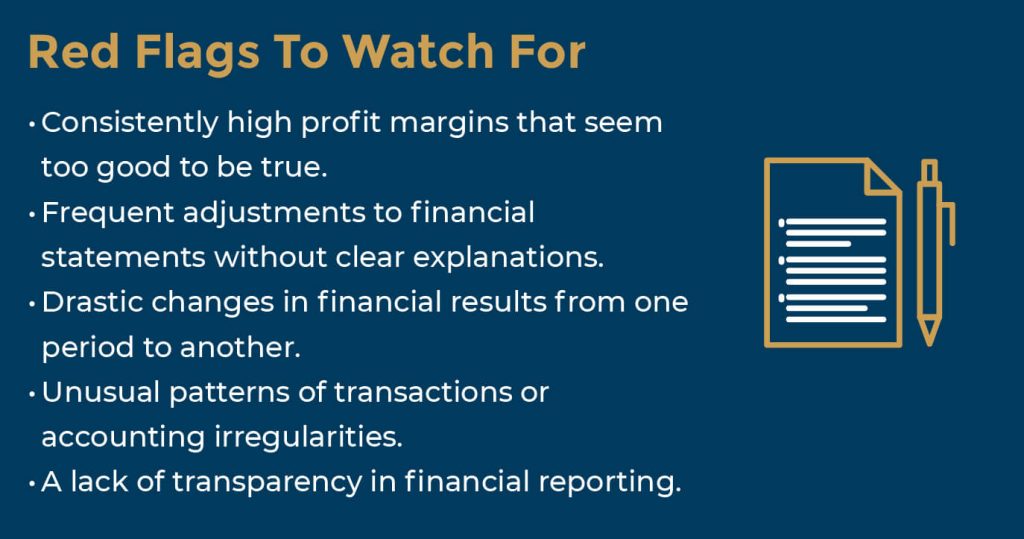
NEWS
4 Common Types of Business Fraud To Watch Out For
Picture this: You’ve worked tirelessly to build your small business from the ground up, pouring your heart and soul into every aspect of it.
Now imagine waking up one day to find it unravelling due to business fraud.
It’s a chilling thought isn’t it?
In today’s digital age, business fraud cases are on the rise, and they can strike anyone, from small business owners to entrepreneurs in the online realm. Knowing how to spot and prevent these deceptive practices is not just a matter of financial security; it’s a vital skill to safeguard your hard-earned success.
So, with that being said, let’s dive into four common types of business fraud cases that you should be vigilant about.
Financial Statement Fraud
Financial statement fraud, a prevalent form of business fraud, occurs when a company manipulates its financial statements to deceive stakeholders. This deceptive practice can involve fluctuating revenues, understating expenses, or manipulating assets and liabilities to present a false financial picture.
Examples Of Financial Statement Fraud
Revenue Inflation: In some small business fraud cases, companies may artificially boost their reported revenue by recording fictitious sales or recognising revenue before it’s earned.
Expense Understatement: Businesses can engage in financial statement fraud by understating expenses to make profits seem larger than they actually are.
Asset Overstatement: Manipulating the value of assets, such as inflating the worth of inventory or property, can mislead investors.
Liability Understatement: Concealing or understating liabilities can create a false sense of financial stability.

How Can You Protect Your Business?
Implement strong internal controls: Develop rigorous financial controls and oversight to prevent fraudulent activities.
Conduct regular audits: Regularly review financial statements and engage external auditors to ensure accuracy and compliance.
Educate employees: Train staff to recognise and report suspicious activities.
Encourage whistleblowing: Create a culture where employees feel safe reporting any wrongdoing.
Use fraud detection software: Employ technology to identify unusual financial patterns.
Employee Embezzlement
Employee embezzlement, often referred to as internal theft, occurs when an employee misappropriates funds or assets entrusted to them by the company for personal gain. This type of business fraud involves a breach of trust and can have serious consequences for both small and online businesses.
Employee embezzlement can take various forms, such as:
Fictitious Expenses: Employees can create fake invoices or expenses to syphon off company funds.
Ghost Employees: Some individuals may add fictitious employees to the payroll and then pocket their salaries.
Skimming: This involves diverting cash from sales transactions before it’s recorded in the company’s books.
Misuse Of Company Credit Cards: Employees may misuse company credit cards for personal expenses.

Warning Signs & Preventative Measures
To protect your business from falling victim to employee embezzlement, it’s essential to be vigilant and take preventative measures. There are warning signs to watch out for, including irregular financial discrepancies, sudden unexplained lifestyle improvements in employees, and employees’ reluctance to take time off, as those engaged in embezzlement often avoid time off to cover their tracks.
In terms of preventative measures, implementing strong internal controls is crucial. Establish robust financial controls and procedures to track expenses, manage payroll, and monitor financial transactions. Conducting regular financial audits to detect irregularities before they escalate is also important. Moreover, educating your staff about business fraud and its consequences fosters a culture of transparency and accountability within the organisation.
Identity Theft & Data Breaches
Business fraud cases involving identity theft and data breaches occur when unauthorised individuals gain access to a company’s confidential information. This can include customer data, financial records, and sensitive business information. Small business fraud cases and online business fraud cases are particularly vulnerable to this type of fraud due to their digital presence.
Identity theft involves the fraudulent use of personal information, such as social security numbers or credit card details, to commit financial fraud or other crimes. Data breaches, on the other hand, occur when cybercriminals infiltrate a company’s database to steal valuable data.
Example: Optus Australia’s Data Breach
In September 2022, Optus, Australia’s third-largest telecommunications company, suffered a data breach that sent shockwaves throughout the country. This breach impacted up to 10 million current and former customers, which accounts for over a third of Australia’s population. Hackers gained unauthorised access to a significant amount of customer data, including personal information and communication records.
This high-profile incident serves as a stark reminder of the importance of robust data security measures. Even large corporations like Optus can fall victim to identity theft and data breaches, emphasising the need for businesses of all sizes to prioritise data protection and cybersecurity.

Vendor & Supplier Fraud
Vendor and supplier fraud refers to the deceptive practices carried out by individuals or companies within your supply chain. These individuals or entities may misrepresent their products or services, overcharge, or even deliver subpar quality goods. This kind of business fraud can have a detrimental impact on your company’s finances and reputation.
Common Vendor Fraud Schemes
Overbilling: Some unscrupulous vendors might inflate their invoices, overcharging your business for goods or services.
Shipment Fraud: In certain cases, vendors may claim to have shipped products that never arrive, leaving you at a loss.
Quality Deception: This involves delivering goods of lower quality than agreed upon, compromising your product’s integrity.
False Credentials: Vendors might provide false information about their qualifications or certifications, putting your business at risk.
How Businesses Can Vet & Monitor Suppliers
To protect against vendor and supplier fraud, businesses should implement several key practices. Firstly, conducting thorough background checks on potential vendors is crucial. This step helps verify their legitimacy and assess their track record. It’s wise to check for references and customer reviews to gain insights into their reputation within the industry. By doing so, businesses can make informed decisions about whether to engage with a particular vendor.
Secondly, ongoing monitoring through regular auditing is essential. Periodically reviewing invoices, purchase orders, and delivery records can help spot any discrepancies or irregularities. This practice is vital for detecting overbilling, substitution of goods, or other fraudulent activities. By staying vigilant and maintaining a watchful eye on the supplier relationship, businesses can significantly reduce their vulnerability to vendor and supplier fraud, protecting both their finances and their reputation in the long run.
Reach Out To The Defenders If You Detect Business Fraud
Staying vigilant against business fraud is crucial for the success and security of any enterprise. As we’ve explored the four common types of business fraud cases, including small business fraud cases and online business fraud cases, it’s evident that no organisation is immune to these threats.
Should you ever detect business fraud within your company, remember that you don’t have to face it alone. Reach out to our experienced criminal lawyers at Benjamin Leonardo – The Defenders. Our lawyers possess the expertise and knowledge needed to navigate the complexities of business fraud cases and ensure justice is served.
By staying informed and seeking legal assistance when necessary, you can protect your business from the harmful effects of business fraud. Stay vigilant, stay safe, and keep your business on the patch to success.

